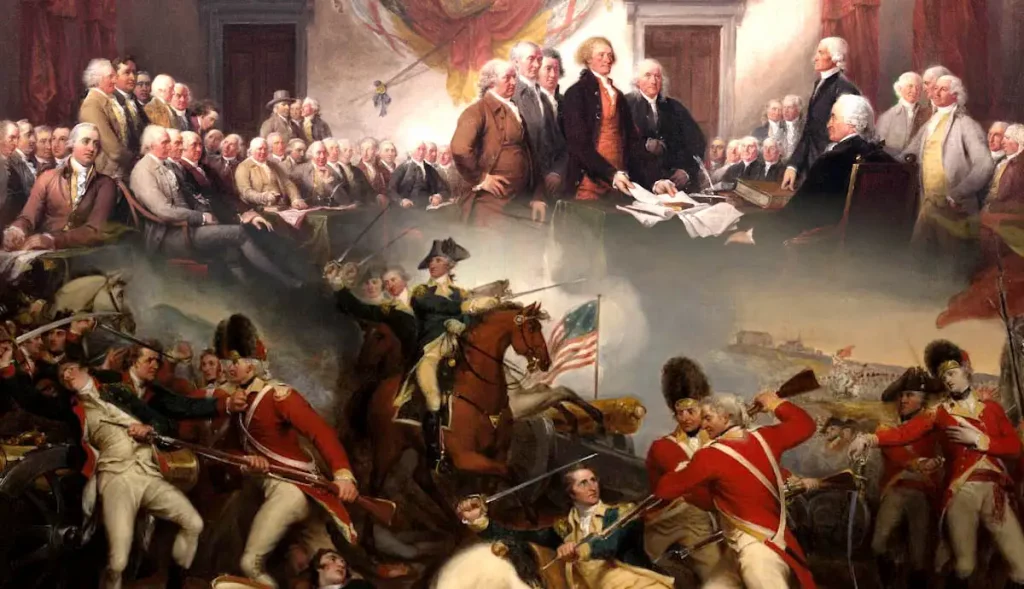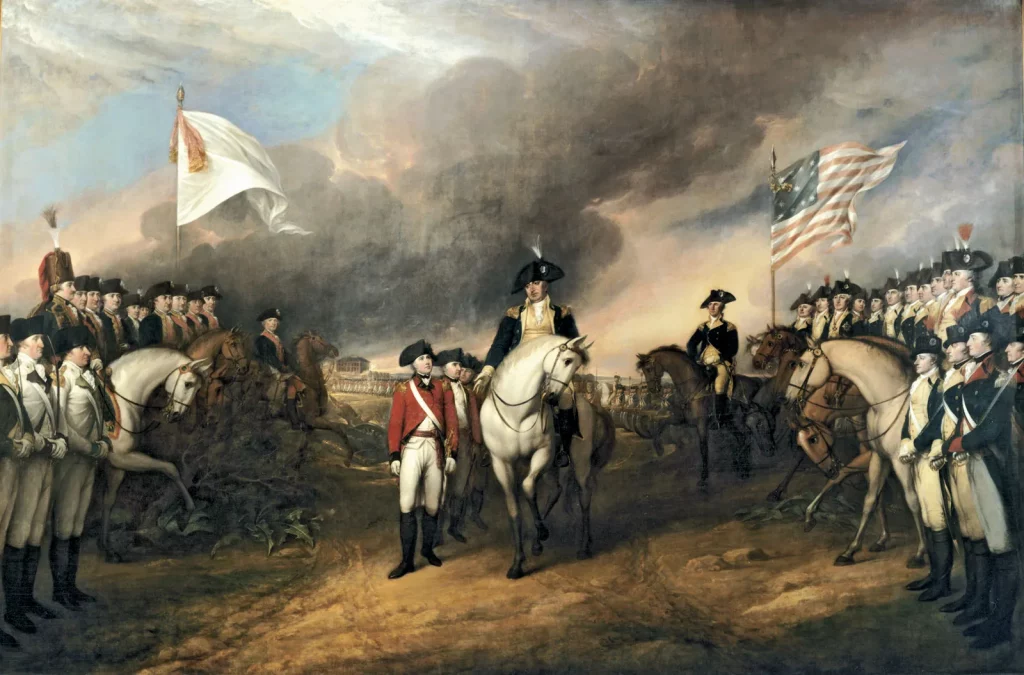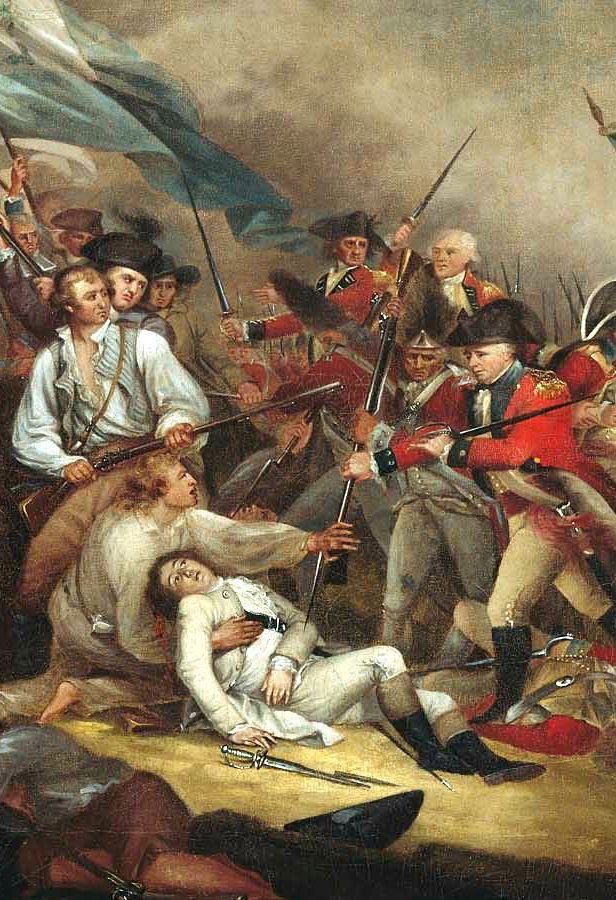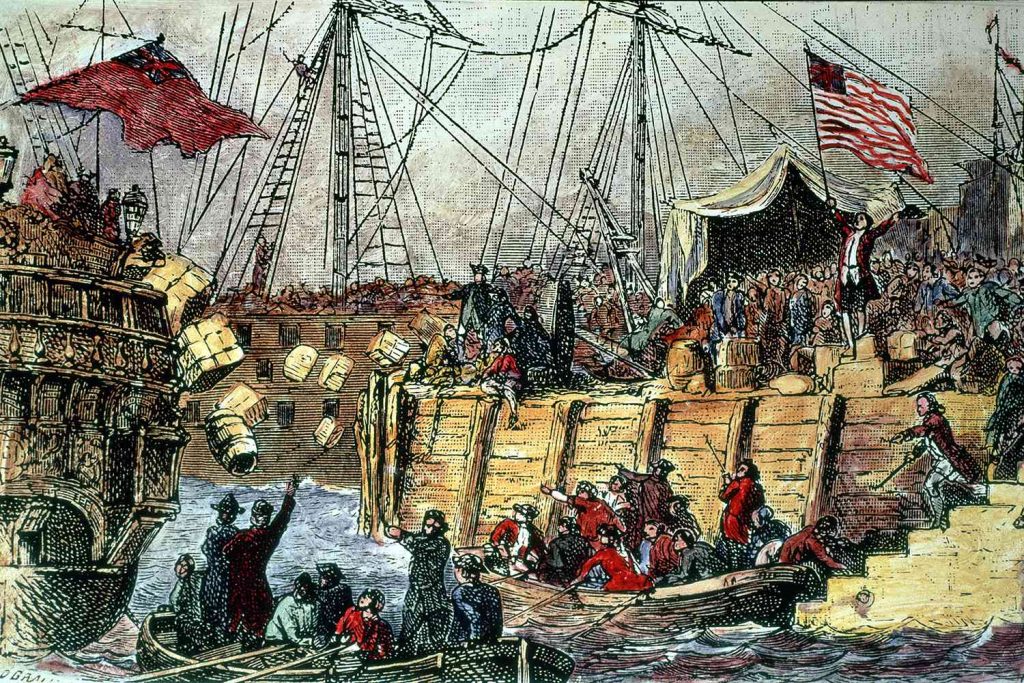| American Revolutionary War |
| Military conflict of the American Revolution |
| Period | April 19, 1775 – September 3, 1783 |
| Commanders | Continental Army led by George Washington vs. British Army |
| Significant Allies | American forces supported by France and Spain |



The American Revolutionary War (1775-1783) was the armed conflict between Great Britain and 13 of its North American colonies, which had declared themselves the independent United States of America. Here are the key details about this pivotal war:
Origins and Causes
- Tensions had been building for years between the American colonies and Britain over issues like taxation without representation, lack of colonial autonomy, and the stationing of British troops in the colonies after the French and Indian War
- Specific events like the Boston Massacre in 1770 and the Boston Tea Party in 1773 further stoked anti-British sentiment among American colonists.
- In 1774, the Intolerable Acts imposed harsh punishments on Massachusetts, leading the colonies to form the First Continental Congress to coordinate resistance.
Outbreak of War
- On April 19, 1775, the Battles of Lexington and Concord marked the first military engagements between British troops and colonial militiamen. This sparked the revolutionary war.
- Major battles included Bunker Hill (1775), Long Island (1776), Trenton (1776), Saratoga (1777), and Yorktown (1781)
- The Patriot victory at Saratoga convinced France to ally with the Americans in 1778, providing crucial military support.
- Washington’s forces endured brutal winters like Valley Forge but continued fighting using guerilla tactics.
Outcome
- After the decisive Siege of Yorktown in 1781, Britain began peace negotiations.
- The 1783 Treaty of Paris recognized American independence and established the new nation’s boundaries.
- The American Revolutionary War established the United States as a new independent republic, the first modern constitutional liberal democracy.
The American Revolution fundamentally changed the course of world history by establishing the United States through an arduous 8-year military struggle against the formidable British Empire
What were the main causes of the American Revolutionary War



The main causes of the American Revolutionary War were:
- Taxation without Representation
The British Parliament passed a series of tax laws, such as the Stamp Act (1765) and the Townshend Acts (1767), to raise revenues from the American colonies without allowing them representation in Parliament. This violated the colonial slogan “No taxation without representation” and fueled resentment towards British rule. - Lack of Colonial Autonomy
The British government increasingly attempted to exert control over the largely self-governing American colonies after the French and Indian War (1754-1763). This included measures like the Proclamation of 1763 restricting western settlement and the Quartering Act (1765) requiring colonists to provide housing for British troops. - The Intolerable Acts
In response to the Boston Tea Party protest (1773), the British enacted the Coercive Acts in 1774, which the colonists dubbed the “Intolerable Acts.” These punitive laws revoked Massachusetts’ charter, closed the Port of Boston, and allowed British troops to be quartered in colonists’ homes, sparking outrage. - Restriction of Civil Liberties
The colonists increasingly resented what they saw as violations of their civil liberties and rights as Englishmen, such as the use of admiralty courts without jury trials and the Quartering Act. - The Boston Massacre (1770)
The killing of five colonists by British troops in Boston helped galvanize anti-British sentiment and was used as propaganda to turn colonial opinion against the British. - Ideological Differences
Enlightenment ideals of natural rights, self-government, and individual liberty clashed with Britain’s authoritarian system and mercantilistic economic policies in the colonies.
The accumulation of grievances over issues of taxation, self-governance, civil liberties, and ideological differences ultimately led the American colonies to take up arms and declare independence from the British Empire in 1776.
How did the Proclamation of 1763 contribute to the tensions between the colonies and Britain
The Proclamation of 1763 was a major contributing factor that heightened tensions between the British colonies in America and the British government, fueling resentment that ultimately helped lead to the American Revolutionary War. Here are some key ways the Proclamation inflamed tensions:
- It prohibited colonial westward expansion beyond the Appalachian Mountains into the territory acquired from France after the French and Indian War. Many American colonists had their sights set on settling and speculating on these newly acquired western lands, so the Proclamation was seen as an unjust infringement on their ambitions and rights as British subjects.
- The colonists viewed the territory west of the Appalachians as a prize they had helped win through blood and treasure during the French and Indian War. Forbidding them from settling these lands was seen as an insult after their sacrifices.
- It was imposed by the British government without input from the colonies, exemplifying the policy of “taxation without representation” that angered colonists. They resented having such a sweeping decree unilaterally imposed on them.
- Colonists saw the Proclamation as an attempt by the British to concentrate colonial settlement along the coasts where they could be more easily controlled and taxed. This fueled fears that the British aimed to treat the colonies as exploited territories rather than as settler societies.
- It ignored the reality that colonists had already settled west of the Proclamation Line, requiring them to vacate their homes and lands. This was seen as an unacceptable infringement on property rights.
- The Proclamation aimed to avoid further conflict with Native Americans, but colonists tended to view the western lands as rightfully theirs to settle and expand into.
By prohibiting westward colonial expansion after the French and Indian War, the Proclamation of 1763 directly clashed with the aspirations and perceived rights of American colonists, generating anger and resentment that was one of the underlying causes of the American Revolution.
What were the Intolerable Acts and why were they so controversial
The Intolerable Acts were a set of five punitive laws passed by the British Parliament in 1774 in response to the Boston Tea Party protest. They aimed to punish the Massachusetts colonists for their defiance and regain authority over the American colonies, but instead fueled revolutionary sentiments that led to the outbreak of the American Revolutionary War. The acts were highly controversial for the following reasons:
- Boston Port Act: This closed the Port of Boston until the East India Company was compensated for the destroyed tea, crippling the city’s economy. It was seen as excessively harsh collective punishment.
- Massachusetts Government Act: It revoked Massachusetts’ charter, allowing the British to appoint the governor and deny certain democratic rights like town meetings. This stripped away the colony’s self-governance.
- Administration of Justice Act: It allowed British officials accused of crimes to be tried in Britain or another colony, rather than by Massachusetts courts and juries. This denied colonists’ rights to impartial trials.
- Quartering Act: It allowed British troops to be quartered in unoccupied buildings, including homes, further infringing on colonial rights.
- Quebec Act: Although unrelated, it was seen as imposing Catholic rule over the largely Protestant colonies by granting religious freedom to French Catholics in Quebec.
The Intolerable Acts were so controversial because they:
- Violated the colonists’ constitutional rights and principles of self-governance.
- Imposed harsh punishments on Massachusetts without due process.
- Appeared to establish absolutist rule and deny civil liberties.
- United the colonies in opposition by threatening the rights of all, not just Massachusetts.
Rather than subduing colonial resistance, the Intolerable Acts radicalized public opinion by confirming colonists’ fears of British oppression and stripping away their autonomy. This helped precipitate the convening of the First Continental Congress and the outbreak of the Revolutionary War in 1775.